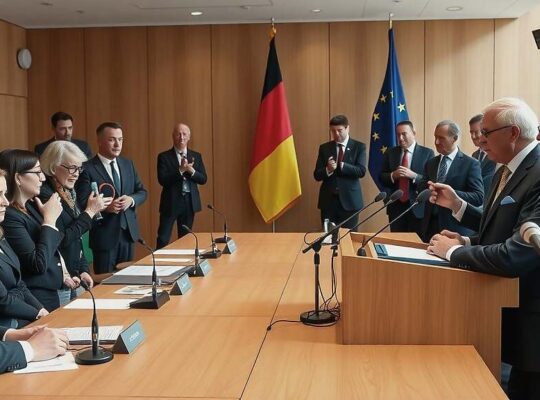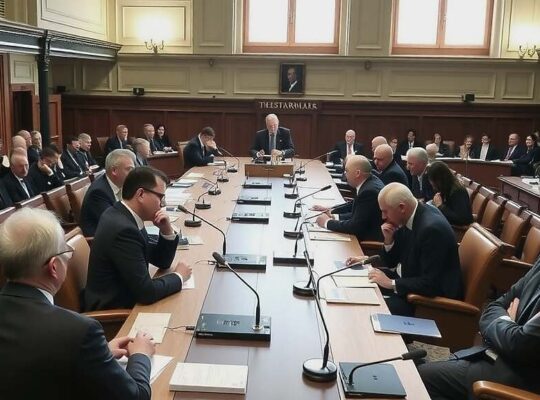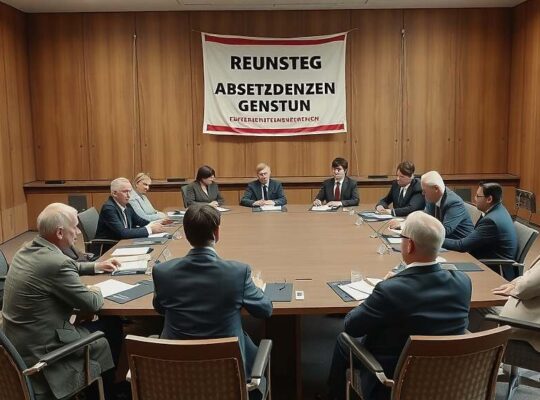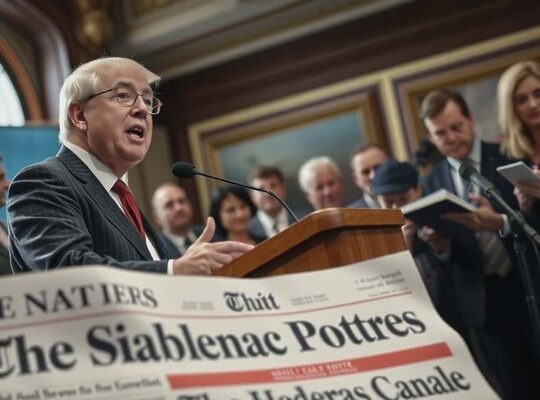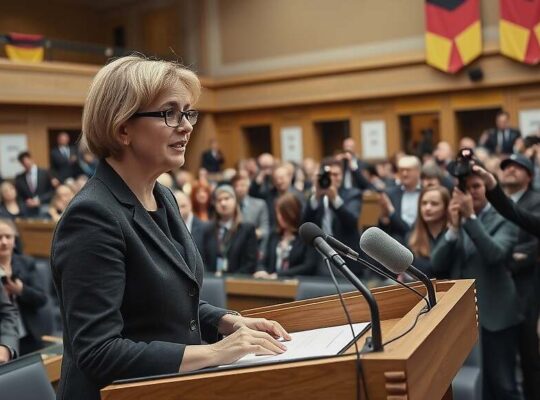The strained relationship between German Chancellor Friedrich Merz and the Junge Union (JU), the youth wing of the Christian Democratic Union (CDU), has resurfaced amidst a contentious debate over pension reforms. Merz publicly urged the JU to adopt a more collaborative approach to the issue, moving beyond simple objections to actively participate in finding solutions. His remarks, delivered at the JU’s annual gathering, contrasted sharply with recent outspoken criticism from the youth organization.
The JU, led by Johannes Winkel, has vehemently opposed the government’s proposed pension package, estimating its additional cost of €120 billion to be unsustainable. Winkel’s earlier speech directly challenged the plans, emphasizing the unacceptability of their financial burden. The JU’s principal concern lies with the stabilization of the pension level, a key demand from the Social Democratic Party (SPD) aiming to maintain benefits at 48 percent until 2031. This ambition has triggered a significant challenge to the governing coalition’s parliamentary majority, with 18 CDU parliamentarians recently threatening to block the legislation.
The undercurrent of Winkel’s address extended beyond policy disagreement, subtly reminding Merz of the JU’s instrumental role in his ascent to the CDU leadership and subsequently, to the role of Chancellor candidate. This implicit pressure highlights a growing political tension, suggesting the JU views its support as contingent on policy alignment.
Merz acknowledged the earlier disagreements, referencing the coalition agreement’s commitment to overhaul the entire system of retirement provision. He alluded to a protracted negotiation process with the SPD, who initially sought to maintain pension levels until 2039 – an objective he ultimately deemed untenable. He further revealed that Finance Minister Lars Klingbeil (SPD) is expected to soon present proposals to bolster private pension provisions.
However, Merz attempted to shift the focus, arguing that strengthening the healthcare and long-term care insurance systems represents a more pressing priority. He pointed to the looming demographic shift, noting the eventual departure of the large birth cohorts from the pension system. He also raised concerns about the escalating costs associated with medical advancements, which he believes disproportionately impact the other social welfare programs.
The public exchange exposes a political fragility within the governing coalition and underscores the complex balancing act Merz must undertake between appeasing his party’s youth wing and navigating the priorities of his SPD coalition partners. The continuing debate casts doubt on the stability of the proposed pension reforms and raises questions regarding the CDU’s long-term strategy in addressing Germany’s aging population and associated financial burdens.



